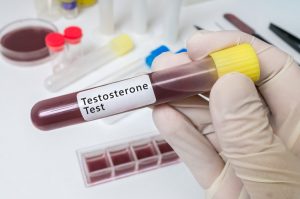 Testosterone may be linked to hardening of blood vessels associated with heart disease. Some men have a greater risk of heart attacks than others, and testosterone may be a contributing factor.
Testosterone may be linked to hardening of blood vessels associated with heart disease. Some men have a greater risk of heart attacks than others, and testosterone may be a contributing factor.
The researchers studied testosterone levels in the blood of mice and found that it triggers cells from the blood vessels to produce bone-like deposits. When the testosterone receptor in mice was removed so that they no longer could respond to the hormone, they produced far less calcium deposits.
Advertisement
Calcification causes the arteries to harden, making the heart to work harder and hence leading to heart stress and damage. This increases the risk of a heart attack and stroke.
Researcher Dr. Vicky MacRae said, “Calcification is particularly difficult to treat, as the biological processes behind the disease are similar to those used by our body to make and repair bone. By finding this link between testosterone and calcification we may have discovered a new way of treating this disease and also reducing heart disease.”
Professor Jeremy Pearson added, “The role of male sex hormones in the control of vascular calcification is poorly understood. This study, in cells taken from mice and human tissue, provides new evidence that testosterone can increase calcification. But significantly more research is needed to understand whether the results have implications for patients with heart disease or those taking androgen replacement therapy.”
Low testosterone linked to heart problems
Although high testosterone is often discussed in relation to heart problems, low testosterone levels can have similar effects, too. Testosterone levels decline as men age, but really low levels can increase the risk of cardiovascular death.
Advertisement
Study lead author Dr. Johannes Ruige said, “When we reviewed the existing research into testosterone and cardiovascular disease, a growing body of evidence suggested a modest connection between the two. A specific pathogenesis did not come forward, but perhaps less frequently investigated events may play a role, such as thrombosis where a blood clot develops in the circulatory system, or arrhythmia, where there is a problem with the heart beat or rate. Based on current findings, though, we cannot rule out that low testosterone and heart disease both result from poor overall health.”
In the study, treating low testosterone with replacement therapy did not seem to improve outcomes for the heart. Furthermore, there is an ongoing debate on the safety of testosterone replacement therapy, especially with regards to its effects on the heart.
Dr. Ruige concluded, “Gaps still remain in our understanding of low testosterone and cardiovascular disease. Ultimately, the goal is to more accurately assess the impact testosterone substitution therapy may have on the heart health of men who qualify for the treatment.”
